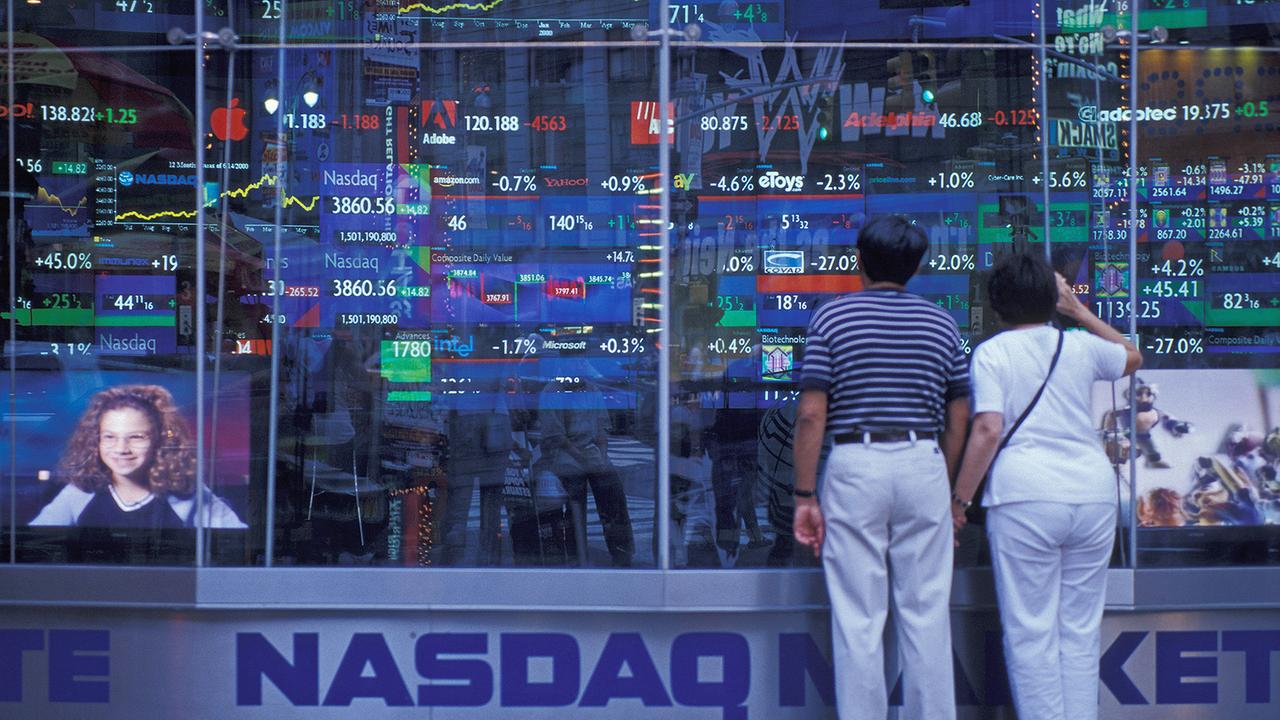market report
After the recent rally, the stock markets continue to catch their breath. By midweek they had made little progress. After Fed Chairman Powell's eagerly awaited speech, the markets are now looking to the ECB.
Jerome Powell didn't have any big surprises in store at his hearing before the House Banking Committee. The head of the US Federal Reserve reiterated that no rapid interest rate cuts are expected. The Federal Reserve (Fed) is only expected to loosen its monetary policy later this year. But first we have to gain more confidence that inflation will decline permanently.
Nevertheless, Powell's statements provided some support for the stock markets because they provided a little more clarity about the monetary policy course. “Investors are reassured because the statements match their expectations one-to-one,” said Phil Blancato from asset manager Ladenburg Thalmann in Florida. The majority of financial markets are currently expecting the first easing of restrictions to take place in June.
In this mixed situation, the Dow Jones rose significantly at times, but then ended trading with a modest gain of 0.2 percent.
The technology stocks on the Nasdaq performed significantly better, mainly thanks to a good balance sheet from the cybersecurity specialist Crowdstrike. The Nasdaq 100 selection index gained 0.67 percent.
In the evening the Fed published its current economic report (Beige Book). It says that economic activity has increased slightly. In the previous report she had spoken of little changed activity. The upward pressure on prices has continued, even if some districts have noticed a decline in inflation.
The current labor market data presented a mixed picture. The private sector in the USA created 140,000 fewer jobs than expected in February, said the private service provider ADP. However, employment growth was revised upwards to 111,000 in January. “Employment growth remains solid,” said ADP chief economist Nele Richardson. “Wage growth tends to be lower, but still above inflation.” The government's monthly labor market report will be published this Friday.
Now the European Central Bank's interest rate decision is coming into focus. Tomorrow the euro currency watchdogs will decide on the level of the key interest rate, but nothing is likely to change for the time being. Here too, market participants are hoping for indications as to when easing can be expected to begin.
On the German market, the DAX rose by 0.1 percent to 17,716 points after two days of slight declines. The most recent record high for the German leading index is 17,816 points.
“First a rally, then a standstill – the current development in the German stock index is not the worst prerequisite for a continuation of the upward movement,” commented market analyst Konstantin Oldenburger from CMC Markets on the last three trading days. New highs are probably only a matter of time. However, it shouldn't go below 17,620 points, otherwise there would be a risk of further losses. “At this point, the most likely scenario is a short- to medium-term consolidation as a pause before reaching new highs in the longer term,” said Pierre Veyret, analyst at broker ActiveTrades.
The fresh export data from Germany was encouraging: exporters started the new year with the strongest increase in sales since mid-2020. German companies delivered 6.3 percent more abroad in January than in the previous month, the Federal Statistical Office said. Economists had only expected an increase of 1.5 percent. Imports climbed by 3.6 percent, twice as much as expected.
However, the overall economic picture remains bleak: the Ifo Institute is much more skeptical about the economic future. The Munich researchers said the gross domestic product (GDP) will only increase by a meager 0.2 percent in 2024, less than was expected in January with an increase of 0.7 percent. “The German economy is paralyzed,” it was said.
The euro continued to rise. At its peak, the common currency reached the $1.09 mark for the first time since the end of January. The encouraging export data from Germany helped in particular.
The price of gold climbed to new historical highs. One troy ounce (31.1 grams) was temporarily at a new historical high of 2,149 US dollars. “The catalyst behind gold's recent rise is the disappointing economic data from the United States, which has once again fueled speculation about possible interest rate cuts,” says Alexander Zumpfe, precious metals trader at Heraeus. Lower interest rates increase the attractiveness of non-interest bearing assets like gold.
The question, however, is whether the rally will continue, says City market analyst Fawad Razaqzada. Given the steep upward movement, market participants jumped on the bandwagon. “Clearly some traders took advantage of the momentum and only bought because the metal had become more expensive.” However, if interest rate expectations are dampened again, this could depress the price of gold.
Oil prices rose significantly. Late in the evening, a barrel (159 liters) of North Sea Brent cost $83.49, an increase of 1.8 percent. U.S. oil reserves rose by another 1.4 million barrels last week to 448.5 million barrels, slightly less than expected. Daily oil production fell by 0.1 million to 13.2 million barrels. However, it remains at a very high level.
On the Nasdaq, the shares of US cybersecurity specialist Crowdstrike reached a record high after a strong quarterly report. At times the technology stock climbed by more than 20 percent. Crowdstrike has long been a beneficiary of the increasing demand for AI-powered cybersecurity. The news supported prices on the technology exchange after the entire industry suffered from profit-taking on Tuesday.
After the attack on a power pylon, production at Tesla in Grünheide will probably remain interrupted until the end of next week. The US electric car manufacturer announced this in the evening upon request. On Tuesday, previously unknown perpetrators set fire to an electricity pylon that is also responsible for supplying the Tesla factory. Production in Grünheide was then stopped.
After record years due to the boom during the Corona crisis, the logistics giant DHL has to cope with significant declines in sales and profits. Deutsche Post, which has been operating under the name DHL since last year, recorded a decline in operating profit (EBIT) to 6.3 (8.4) billion euros in 2023, with a decline in sales to 81.8 (previous year: 94.4) billion euros.
Deutsche Lufthansa has to wait for a return to the DAX. The regular review of the most important German stock market indices revealed no changes in the league of the 40 largest German stock market stocks, Deutsche Börse announced. This meant that the online fashion retailer Zalando, which was considered the first candidate for relegation, was able to maintain its place. Lufthansa was expelled from the DAX in 2020 in the wake of the Corona crisis, in which the airline had to be supported by the state.
Meanwhile, several collective bargaining disputes are troubling the company. In the afternoon, the UFO union announced that the flight attendants had also voted for a strike.
In the evening, the solar and wind farm operator Encavis confirmed a media report about takeover talks with KKR. The US financial investor is said to be offering over two billion euros for the MDAX company, the Bloomberg news agency reported. According to Encavis, the negotiations are still “at a very early stage”. The Hamburg company has recently been struggling with higher interest rates and costs. Recently, falling energy prices have also weighed on Encavis's operating result, according to Berenberg analysts. The Hamburg company owns more than 80 wind farms and more than 200 solar parks in Europe.
With the success of its new smartphone Mate 60, the Huawei Group is taking market share from Apple's iPhone, among others. According to calculations by the analysis firm Counterpoint Research, Huawei sold 64 percent more smartphones in the first six weeks of this year than in the same period last year. iPhone sales, on the other hand, were 24 percent lower.
High raw material costs and special expenses slowed down the fragrance and flavor manufacturer Symrise last year. The adjusted operating result (Ebitda) fell by almost two percent to 903.5 million euros. Sales rose by 2.4 percent to 4.73 billion euros, organic growth was almost eight percent. The bottom line is that the DAX group achieved a profit of 340 (2022: 406) million euros.




